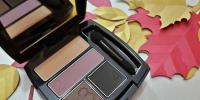How to rinse the gums with inflammation? All the best pharmacy and home remedies
All medicines used to relieve inflammation from the gums can be divided into 2 types: antiseptic (which kill pathogenic bacteria) and anti-inflammatory. In this case, the antiseptic solution directly affects the bacteria that provoke the development of the inflammatory process. Anti-inflammatory drugs have little to no effect on bacteria, but they can reduce inflammatory responses. So how to rinse your mouth with gum disease?
The choice of remedy largely depends on the disease of the patient. So with gingivitis or periodontitis, you can use any medication, but antiseptics will have the greatest effect in this case. If a person has an inflamed hole after tooth extraction, then in this case only antimicrobial drugs, such as Chlorhexidine, can be used.
Antiseptic gum treatments
Of the variety of drugs available today for rinsing inflamed gums, doctors most often prescribe Chlorhexidine and Miramistin. These professional dental products have powerful antimicrobial properties. After all, most often inflammation of the gums is provoked by bacteria that make up plaque and tartar.
- Chlorhexidine 0.05% can be bought at any pharmacy without a doctor's prescription. Despite the low cost, this is a very effective remedy with a strong antimicrobial effect. To relieve inflammation from the gums, it is recommended to rinse your mouth with Chlorhexidine 2 times a day in the morning and evening after dental hygiene. It can be used both for inflammation in the oral cavity, and after the extraction of teeth.
- Miramistin 0.01%. This solution can also be bought without a doctor's prescription at any pharmacy. It also has a low price, but its antimicrobial action is slightly inferior to Chlorhexidine. However, Miramistin can affect not only bacteria, but also the herpes virus, so they can also treat herpetic stomatitis.
- Furacilin- a drug that is widely used both for colds and dental diseases. To prepare the solution, you need to crush 1 tablet of the medicine and mix it with 100 ml of warm boiled water. After that, approximately 1/3 of the solution must be taken into the mouth and kept there for 2-3 minutes until you feel that the pain goes away. The remaining solution cannot be used. Rinse your mouth with furatsilin once every 2-3 hours. Usually, after a day, inflammation practically disappears in patients. However, to consolidate the effect, it is recommended to carry out the procedure in the morning and evening for several more days.
For gum inflammation, it is not recommended to rinse your mouth with peroxide. It can only be used in the doctor's office and only as a complex therapy, but not as a separate tool. Dentists use peroxide when cleaning periodontal pockets. During this procedure, the doctor draws peroxide into a syringe and cuts off the sharp end of the needle. After that, the end of the needle is placed in the periodontal pocket, and the doctor begins to wash it under pressure. During the procedure, a large amount of pus and bacteria are washed out.
Doing such a procedure yourself at home is categorically not recommended, as this can lead to sad consequences. But the usual rinsing of the oral cavity with peroxide will not bring absolutely no result. During rinsing, the liquid does not enter the periodontal pockets and only washes the mucosa. In addition, diluted peroxide almost completely loses all of its medicinal properties. Its concentration should be 3%.
Anti-inflammatory drugs usually have a mild antibacterial effect, but they are best at reducing inflammation. Please note that almost all herbal infusions with anti-inflammatory action contain alcohol, which is necessary during manufacture for extraction.

It is not recommended to rinse your mouth with soda solution for inflammation of the gums. Soda is not only unable to relieve inflammation, it loosens the gums, as a result of which pathogenic bacteria penetrate into the deeper layers of tissues. Because of all this, the course of the disease is only getting worse.

Dentist advice
Make an appointment with your dentist every 3 to 4 months for a routine checkup. Do not rush to remove decayed and mobile teeth. Consult with other experts, compare several opinions.

Each of us can prepare decoctions and infusions for rinsing the mouth at home. However, it is important to know that all herbal infusions contain a large amount of pigments that tend to stick to tooth enamel in a short time.
As a result, after some time, a film appears on the teeth, on which bacteria settle. This can cause an increase in the thickness of plaque and calculus. Not the best choice in this situation would be rinsing your mouth with oak bark. Due to the presence of a large amount of coloring components in such a decoction, the teeth darken very quickly. Therefore, the right choice would still be rinsing the mouth with special medicinal elixirs. They contain all the useful substances from medicinal plants, while they are devoid of pigmentation. Such elixirs can be used throughout the year, but provided that they do not contain any antibacterial additives.
You can make the following decoctions at home:
- Sage decoction. To prepare the medicine, you need 1 tbsp. l. dry powdered sage leaves pour a glass of boiling water and leave in a warm place for half an hour. After that, you need to wait until the broth has cooled to a slightly warm state and rinse your mouth with it at least 3 times a day until the symptoms of the disease have passed;
- Decoction of chamomile flowers. To prepare 1 tbsp. l. flowers should be poured with 1 cup of boiling water. Leave for 30 minutes. Then cool the decoction and rinse your mouth as often as possible until completely cured. This remedy is often used to treat gingivitis;
- Decoction of ginger- This is a powerful natural antibacterial agent, a good prevention of many diseases of the oral cavity, including gum disease. Apply a decoction of ginger 2 times a day in the morning and evening after oral hygiene. To strengthen the gums, doctors also recommend chewing a small piece of ginger after eating;
- Calamus root decoction will help not only to relieve inflammation in a short time, but also eliminate halitosis. To make a medicine, you need to grind the calamus root and pour 250 ml of boiling water over it. Warm up and leave for 30 minutes. Rinse your mouth with this infusion every day after hyena teeth;
- Decoction of the golden mustache has been used for centuries to strengthen the gums, as well as treat and prevent their inflammation. To prepare the leaves of the plant, it is necessary to grind pour 200 ml of boiling water. Let it brew for half an hour. Rinse your mouth with the resulting remedy every day in the morning after brushing your teeth.
Can also be used to relieve inflammation aloe. To do this, you can make attachments or rinse. For rinsing, you need to squeeze the juice from 1 leaf of the plant and dilute it with a glass of warm distilled water. Rinse your mouth 3 times a day. In addition, aloe gruel can be applied to the diseased gum 5-7 times a day. It is not recommended to use pharmacy tincture on alcohol, as it can cause burns.
Also, if you are not allergic to bee products, you can use propolis tincture. To prepare the solution, mix 20 drops of propolis tincture with alcohol in 250 ml of warm boiled water. Rinse your mouth 3-5 times a day until complete recovery.
In order to prevent the disease from returning to you, it is recommended to regularly carry out its prevention. To do this, it is recommended to consume a large amount of plant foods rich in vitamins A and C. In addition, you need to include foods high in calcium in your diet, quit smoking, and regularly clean your tongue from plaque. You also need to regularly carry out oral hygiene, while brushing your teeth, gently massage the gums with a toothbrush and visit the dentist at least once every six months.




